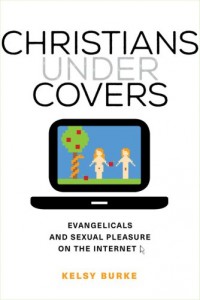Last week, the evangelical-influenced Barna Group released findings from its new study, “The Porn Phenomenon,” based on a survey commissioned by Josh McDowell Ministries. The study, which poses a wide range of questions about pornography use, is unique in its scope, which includes a nationally representative sample of teens, young adults and Christian pastors. Not surprisingly, the findings support the story evangelicals like McDowell have long been telling: that the sexual morality of Americans—including many self-proclaimed Christians—is going down the drain.
According to the study, Americans are not bothered by pornography and pornography use (although the survey’s wording implies they should be, describing it as a “struggle” throughout the report):
- Ninety percent of teens and 96 percent of young adults talk about pornography in either neutral, accepting, or encouraging ways.
- Only 32 percent of teens and young adults report that viewing pornography is “usually or always wrong.”
- Teenage and young adult men are the group most likely to view porn at least weekly with 51 percent reporting that they do. (Adult women are least likely at just 6 percent).
- About one in five youth pastors admit they currently use porn at least monthly. The vast majority (87 percent) of pastors who use porn “feel a great sense of shame about it,” compared to other adults who are much less likely to care.
 Christians Under Covers: Evangelicals and Sexual Pleasure on the Internet
Christians Under Covers: Evangelicals and Sexual Pleasure on the InternetKelsy Burke
University of California Press
(February 9, 2016)
But while evangelicals may believe that God designed sex to be pleasurable for married couples, they may not know how to achieve that pleasure. I call this an inhibition paradox: evangelicals who grow up hearing a constant refrain of negative messages about sex are suddenly expected to enjoy it come their wedding night.
In my new book, Christians Under Covers: Evangelicals and Sexual Pleasure on the Internet, I explore how evangelicals attempt to bridge secular attitudes and religious values about who is allowed to experience sexual pleasure. This evangelical effort has produced a booming industry: books, conferences, and websites that offer tools for achieving good, godly sex. In order to be practically useful, Christian sex advice must frankly discuss and sometimes visually represent the act of sex. To be sure, there are plenty of euphemisms in evangelical conversations about sex (like calling men microwaves and women crockpots when describing stereotypical sexual responses), but there’s also plenty of candid talk about sex acts—especially online.
On blogs, message boards and online stores, evangelicals receive answers to a wide array of incredibly detailed questions about sex. These websites, unsurprisingly, are strictly porn-free: no videos of intercourse, no nude images. Even terms like “cock” and “pussy” are swiftly deleted by moderators. If websites include images, they are stick figures, line drawings, or photographs of toy people [see image right].
Despite these precautions, writing about sex is, well, still writing about sex. Online discussions become stories about sexual bodies, desires and pleasures. For example, a man gives instructions to women on how to strip-tease:
He likes to see you touch where he wants to touch, so rubbing and touching your breasts and crotch is good. Do this over your clothes, under your clothes, and when you get rid of your clothes. You can accentuate these things by making a face that says, “that feels good.” The magic word is: tease. Tease with what you say. Play with your nipples and ask if he likes it. Touch yourself under your panties and tell him what you feel.
The author of this post—a self-identified conservative Christian—firmly believes that sexual experimentation can and should be a part of a godly marriage. He chooses his words carefully, using “breast” and “crotch” instead of more vulgar alternatives. There are no images to accompany his instructions, but none are needed to imagine the sexual scene he sets.
I interviewed creators and users of Christian sexuality websites and asked whether the sexual nature of the content worried them. Surprisingly, no one seemed very concerned. How are they so confident that these websites are wholesome rather than obscene? The Barna Group has its answer, based on the “Porn Phenomenon” data: “Turns out, it’s more a question of function than form. If it’s used for sexual arousal, it’s porn. Simple as that.”
Ultimately, the issue of obscenity on these sites comes down to a question of faith. Website creators told me they felt called by God to launch their blogs, message boards and online stores. They see their sites as ministries, helping fellow married Christians enjoy what God created for them.
They believe that married couples can use the sites because they can keep their sexual thoughts within the confines of marriage, imagining only their spouse as they read and contribute to discussions. These evangelicals have faith that if anyone uses the sites as porn then God will hold them accountable. As one online store owner explained to me, “It’s not my job to be the Holy Spirit and convict people.”
Evangelical leaders will undoubtedly use the Barna report to fuel their claims that pornography is an epidemic in America. As Josh McDowell noted in the study’s press release,
It is vital to raise awareness about the threat of Internet pornography. Pornography violates […] the unity of our families and our moral fabric and fiber as a nation.
This is a familiar “culture wars” refrain—moral versus immoral; us versus them. But whatever the report reveals about pornography it obscures about evangelical Christianity and the larger sexual landscape, which is a much more complicated story. Evangelicals find creative ways indeed to be in the world, but not of it.






